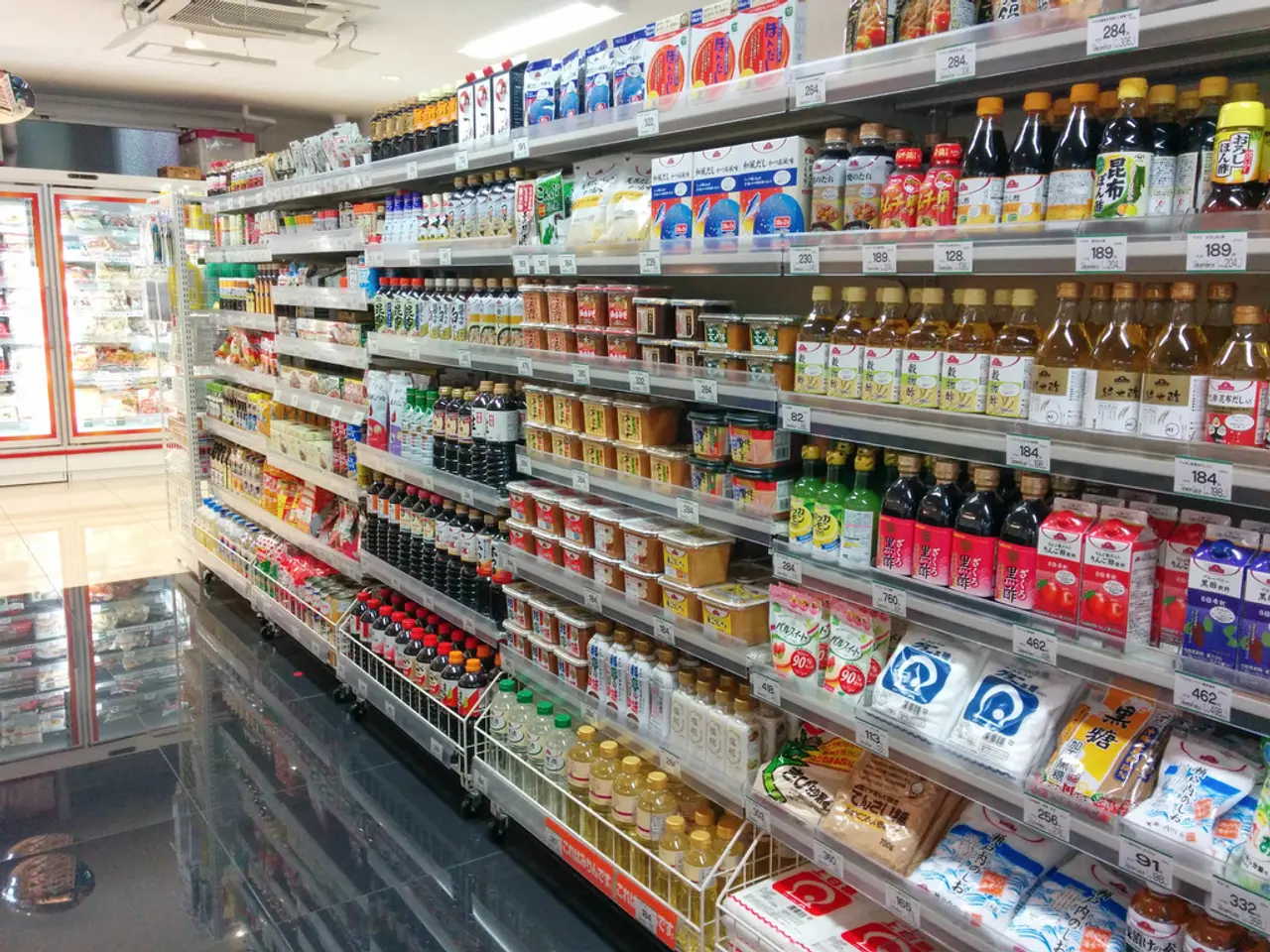Retail Businesses Grapple with Tariff-Related Uncertainty
In a recent survey, the 2025 Global Consumer Sentiment on Grocery Inflation, it was revealed that tariffs, inflation, and supply chain challenges continue to significantly impact global grocery spending [2]. The survey, conducted by Blue Yonder, polled consumers across multiple countries, reflecting a global concern about rising grocery prices.
The increase in grocery prices is evident, with food-at-home prices (groceries) rising 2.4% year-over-year as of June 2025 [1]. This inflationary environment is partly due to costs rising from tariffs and supply constraints, although specific tariff impacts are less explicitly detailed in recent data.
Supply chain challenges have contributed to price volatility in fresh produce, with certain vegetables experiencing price declines in 2025 after prior spikes caused by extreme weather and disrupted growing conditions in 2024 [1]. This suggests that supply chain and environmental factors continue to directly influence grocery costs and availability.
The survey results indicate that consumers are highly concerned about grocery inflation, with 65-71% noticing price hikes and planning to change shopping habits [2]. Many consumers are responding by purchasing more discounted items and adjusting their spending [2][3][5]. Approximately one-third of consumers would prefer shopping based on promotions and discounts (36%) and switching to private label brands (34%) [2].
Interestingly, 42% of consumers would shop at discount and wholesale stores in response to price increases [2]. This shift in consumer behaviour is not limited to the United States, as consumers in the U.K., the Middle East, and other countries also attribute rising prices to global tariffs [2].
The retail sector, a significant contributor to the economy, is also feeling the pinch. Retail is the nation's largest private-sector employer, contributing $5.3 trillion to annual GDP and supporting over one in four U.S. jobs [4]. However, according to the U.S. Census Bureau, overall retail and foodservice sales dipped 0.9% and grocery sales slid 0.8% from April to May [4].
The National Retail Federation (NRF), an organization that advocates for retail success based in Washington, D.C., has been closely monitoring these developments. Jack Kleinhenz, chief economist at the NRF, authored the July edition of NRF's Monthly Economic Review [6]. In the review, he discusses the pervasive economic uncertainty and the focus on consumer inflation psychology, which refers to how expectations about future inflation influence current spending and savings decisions [6].
However, the future remains uncertain. There are many crosscurrents surrounding tariffs, immigration, and deregulation, and it's unclear how they will impact inflation for retail products and how long they will be in place [7]. Anxiety and confusion have taken center stage in the economy and financial markets due to this uncertainty [8].
In conclusion, tariffs and supply chain disruptions continue to contribute to ongoing inflation in grocery prices globally, prompting significant consumer concern and behavioural changes. Consumers are actively adjusting their grocery purchase behaviours in response to price increases, as reflected in the survey results and recent economic data [1][2][3]. The retail sector, a significant contributor to the economy, is also feeling the pinch, with overall retail and foodservice sales dipping from April to May [4]. The NRF continues to monitor these developments closely, providing insights and advocating for retail success.
- The survey results indicate that private label brands could see an increase in demand as consumers adjust their spending habits due to grocery inflation, with one-third of consumers preferring to switch to private label brands to save money.
- The retail industry, a significant contributor to the economy, is being affected by rising grocery prices and supply chain challenges, as evident in the dip in overall retail and foodservice sales from April to May.
- The finance sector is closely watching the impact of inflation on the retail business, as uncertainty surrounds factors such as tariffs, immigration, and deregulation, and their potential long-term influence on retail product inflation.




